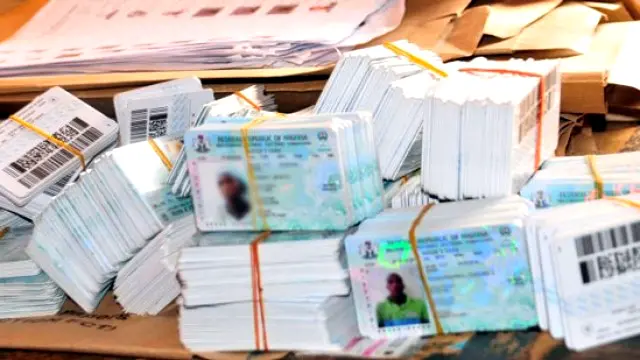As the February 25 election in Nigeria approaches, nearly 10 million new voters have been registered after rushing to get voting cards, with 84% of them being under the age of 34. However, the Independent National Electoral Commission (INEC) also reported that 1.12 million of these new registrations were invalid.
Voting cards, also known as Permanent Voting Cards (PVCs), are an essential aspect of the electoral process in Nigeria. PVCs are issued by the Independent National Electoral Commission (INEC) and are necessary for citizens to be able to vote in the country’s elections
This election is significant as it marks the first time since the end of military dictatorship in 1999 that a third-party candidate is presenting a real challenge to the dominance of the ruling All Progressives Congress (APC) and the main opposition People’s Democratic Party (PDP).
Despite INEC’s efforts to make the election more transparent by introducing an electronic transfer of results and biometric voter identification technology, past elections have been marred by logistical delays, violence, and claims of fraud and vote buying.
Voter turnout
Many young voters are eager to have a say in the future leader of the country as Nigeria struggles with insecurity, high living costs, and increasing poverty. This could mean that Nigeria’s upcoming election could witness a high voter turnout compared to the 34 per cent turnout in Nigeria’s 2019 general election. The 2023 general election is expected to be dominated by the Nigerian youth.
The chairman of the Independent National Electoral Commission, Professor Mahmood Yakubu, has said that the 2023 general election is ultimately an election for the young people in Nigeria. The INEC has stated that there are currently 93.4 million registered voters in Nigeria out of which 37 million, are young people between the ages of 18 and 34.
The winner of the presidency will also have to tackle a host of challenges such as domestic insecurity, reviving an economy hit hard by the financial fallout from Russia’s war in Ukraine, rising separatist tensions in the country’s southeast and the ongoing violence with armed groups and bandit militias in the north of the country.





